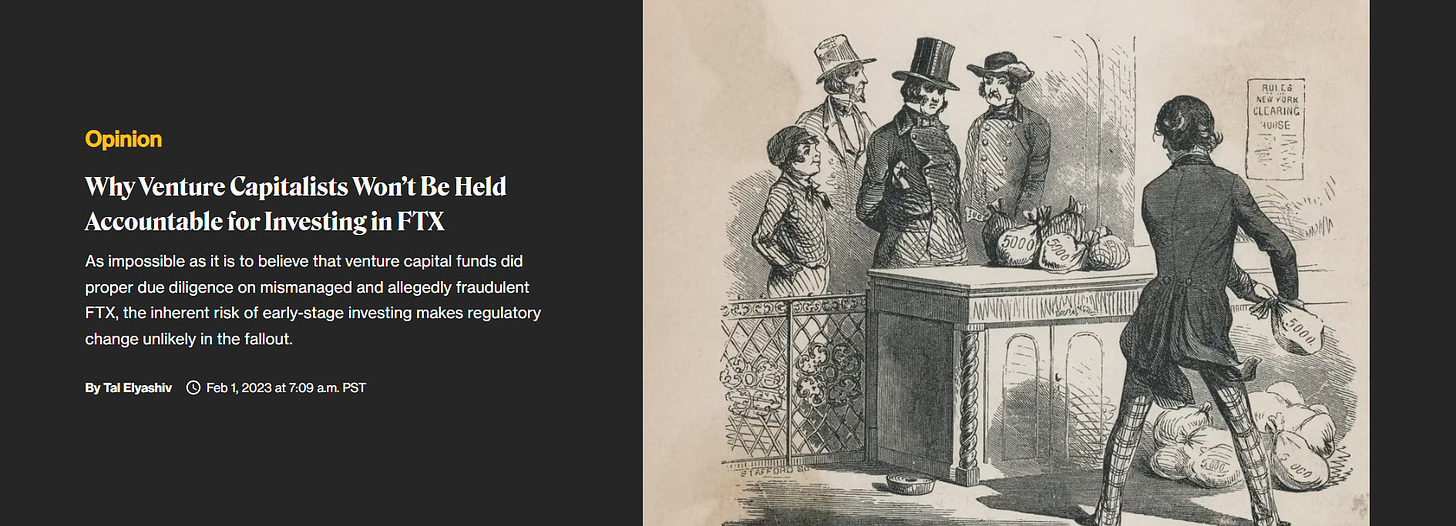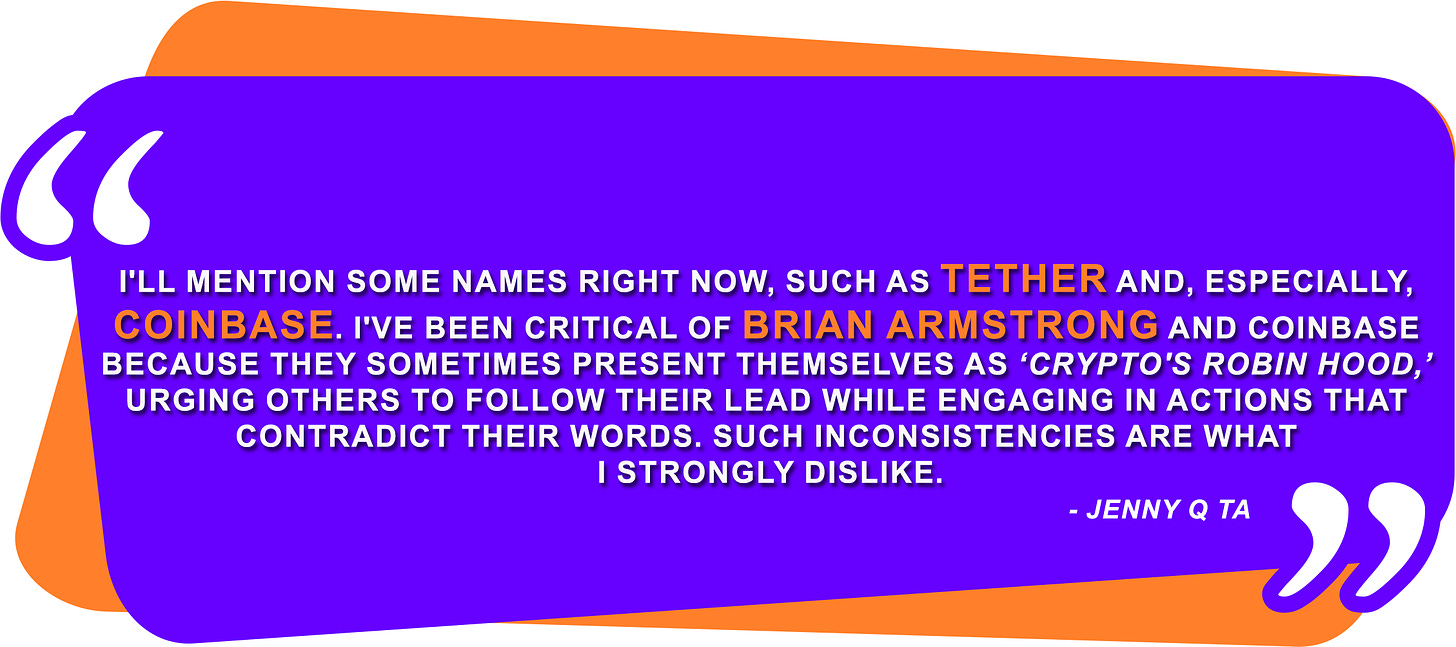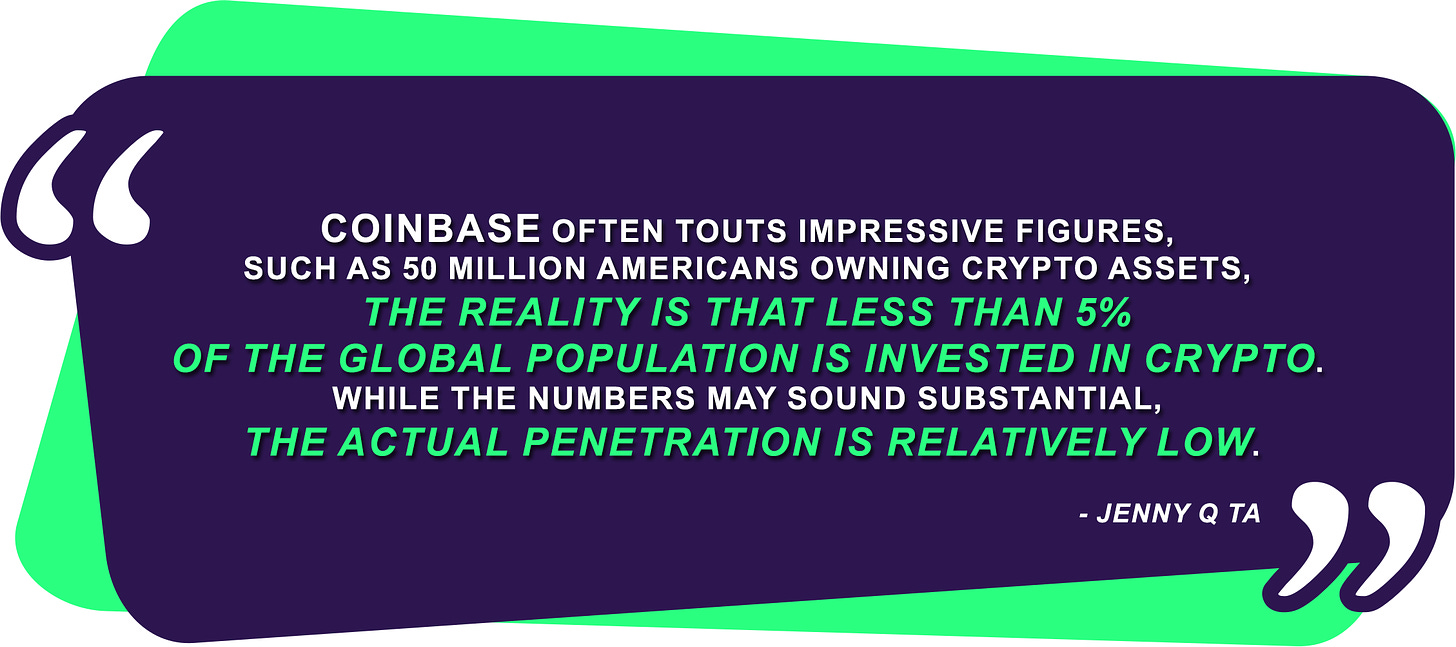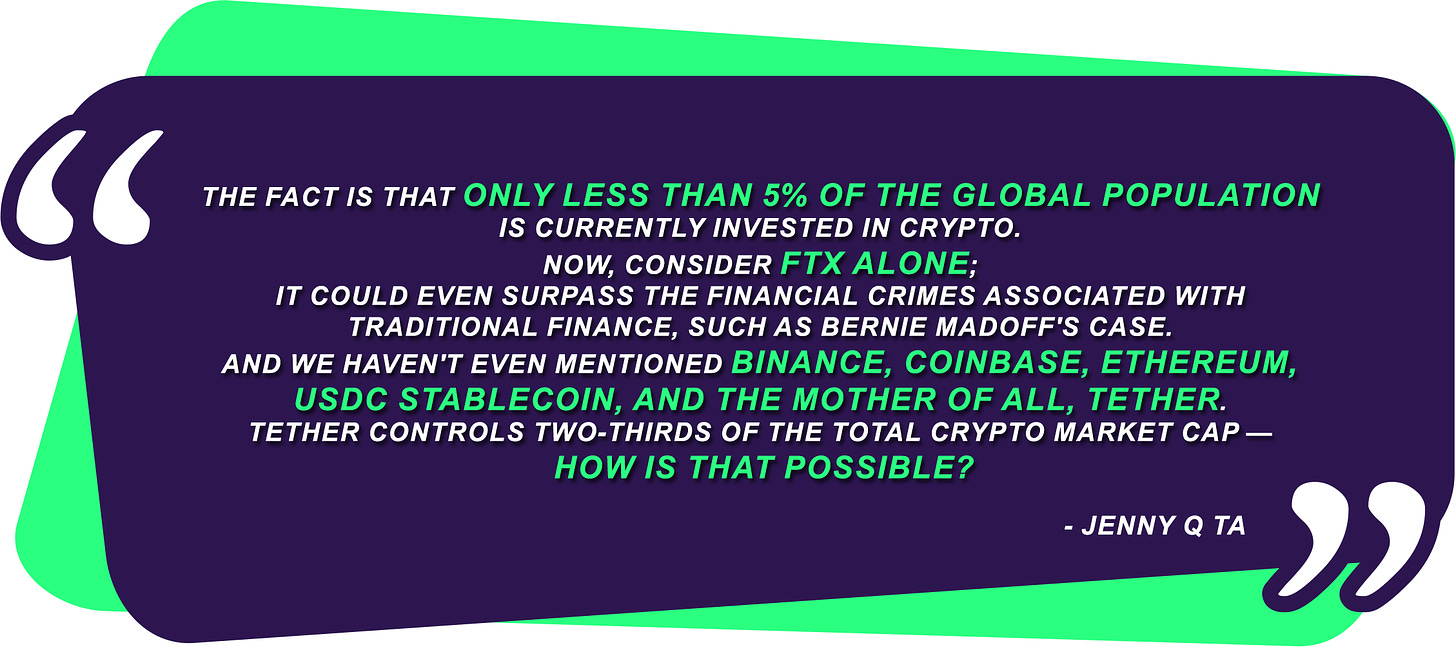Crypto Clash: Tackling Bad Actors and Ethical Quandaries in the Digital Frontier
Navigating the Cryptocurrency Landscape: Challenges, Ethics, and Accountability
Click here for the full and complete Twitter Space hosted by attorney John Reed Stark
In this thought-provoking Twitter Space with attorney-host, John Reed Stark, I find myself immersed in a multifaceted discussion on cryptocurrency and its associated challenges. The conversation starts with a bold assertion that cryptocurrencies have massive negative externalities, encompassing everything from facilitating terrorism to enabling money laundering. What’s twisted? I’m PRO crypto!
Stephen Diehl, a fellow participant, a software engineer in London, England, made a particular reference to Zeke Faux's book, 'NUMBER GO UP,' in which Faux dedicates a whole chapter to the grim compounds in Cambodia. These compounds are where women are coerced into running scams against Westerners, with cryptocurrencies such as tether stable coin serving as the primary vehicle for these crimes. The conversation raises the question of whether such issues would even exist without the presence of cryptocurrencies, highlighting how traditional banks have safeguards against such activities, unlike crypto. The concept of 'whataboutism' is challenged, with the assertion that crypto is inherently designed for criminal purposes, making it a potentially perilous technology.
My Stance on Crypto: Pro-Crypto but Anti-Bad Actors
Click here to follow our conversation on my YouTube channel, this section starts at 2:00.
Now, those who are following me on Twitter know that I have been extremely hard and outspoken on slamming the bad actors in the crypto space. Of course, I would love to see cryptos thrive, gain widespread adoption, even a bull run, but I believe all of that should happen after we lock up and put away all of the bad actors. And I think we're only like maybe 25% there.
Of course, I'm pro-crypto. When it comes to use cases, one aspect I believe in is cryptocurrency's innovation. I particularly love smart contracts, as they automate and enhance various industries. Additionally, I appreciate decentralization, as it reduces the influence of central authorities, which I'm not fond of. Anything in excess can be problematic. Furthermore, I value the security provided by blockchain technology. This belief is rooted in my experience building products in the Web3 space.
To me personally, I believe that blockchain and cryptocurrency are here to stay. Now, that may sound concerning at the moment, given the issues we're dealing with due to the presence of bad actors. That's precisely why I'm such a strong advocate for removing all these bad actors. I would love to wake up one day to a world where all these malicious individuals have disappeared. We should have regulations in place for AML KYC, especially for large companies. I'll mention some names right now, such as Tether and, especially, Coinbase. I've been critical of Brian Armstrong and Coinbase because they sometimes present themselves as ‘crypto's Robin Hood,’ urging others to follow their lead while engaging in actions that contradict their words. Such inconsistencies are what I strongly dislike.
The Future of Crypto Custody: Balancing Trust and Innovation Amidst Bad Actors
In this next discussion, I emphasize the importance of securing financial assets and draw a parallel between traditional finance and the cryptocurrency space. I mention the absence of established insurance entities in crypto due to bad actors. I express the preference of younger generations for cold wallets and the need for future hybrid models in crypto custody. I foresee the potential for crypto-specific insurance and call for timely regulation to prevent fraudulent growth in the industry while maintaining hope for its positive impact.
Click here to follow the full audio on YouTube, this section starts at 8:27.
Returning to the point you made about entrusting your 529 plans with a reputable financial institution, I wholeheartedly agree with you. It's worth noting that I've founded two investment banking firms from the ground up, so I'm familiar with dealing with clients in a similar manner. In traditional finance, clients are accustomed to safeguarding their assets with trusted entities like Goldman Sachs and Morgan Stanley. However, in the realm of cryptocurrency, we often refer to these entities as exchanges, such as Coinbase, Gemini, Kraken, and others.
Now, in traditional finance, you're probably familiar with institutions like SIPC (Securities Investor Protection Corporation) insurance on Wall Street and FDIC (Federal Deposit Insurance Corporation) for banks. However, in the cryptocurrency space, none of these established names exist. It's quite understandable why, especially given the prevalence of bad actors in the crypto sphere. Who would want to provide insurance in an environment rife with crimes, frauds, and scams?
My perspective is that due to these bad actors, many millennials, some Gen Z, and younger Gen X individuals prefer the security of cold wallets over hot wallets typically associated with exchanges. A recent incident involving Mark Cuban losing nearly a million dollars due to a hack while using a hot wallet underscores this point. Here's where I see the future heading: I believe in the long term, the crypto space will evolve into a hybrid model, incorporating elements of both decentralization and centralization, especially concerning custody.
This evolution may involve third-party solutions or even government intervention—although this is a far-future scenario. Similar to traditional finance's FDIC and SIPC, we might witness the emergence of insurance options for the crypto space. This could instill trust, attract more participants, and foster greater adoption.
It's worth noting that while Coinbase often touts impressive figures, such as 50 million Americans owning crypto assets, the reality is that less than 5% of the global population is invested in crypto. While the numbers may sound substantial, the actual penetration is relatively low. Therefore, I believe it's an opportune time for regulators to take robust action against bad actors, as the crypto space currently represents only a small fraction of the financial landscape. If left unchecked, the growth of fraudulent activities in the crypto space, alongside its increasing popularity, could lead to a cesspool of scams. That's why I've been vocal about the need for regulatory measures at this juncture.
Bitcoin's Shiny Diamond in a Muddy Pond: A Perspective on Centralization and Accountability in Crypto
Click here to follow the full audio on YouTube, this section starts at 15:12.
I have many friends who are hardcore Bitcoin believers, and I commend, praise, and support them for their long-standing commitment to the cryptocurrency. However, when it comes to innovation, Bitcoin is like a shining diamond, but it finds itself in a muddy pond. The diamond, symbolizing Bitcoin, stands as a decentralized and valuable asset. Yet, the surrounding muddy pond represents centralized entities and sketchy exchanges like FTX, Binance, and Coinbase. John earlier mentioned Coinbase and its CEO, Brian Armstrong's actions, which, in my view, seem driven by self-interest. Those who support such actions should feel a sense of shame. Questionable stablecoins like Tether and USDC, along with the recent troubles faced by Luna and Binance, add to the concern. Those who defend these individuals and entities for personal gain should share accountability for their role in what can be termed criminal activities. Their actions contribute to the growth of a problematic environment. These centralized actors have clouded the Bitcoin landscape with fraud and criminal behavior. Until the pond is cleaned up – a mission John passionately supports – and these entities are held accountable, the reputation of Bitcoin, our diamond, remains tarnished, in my opinion.
Bitcoin's SEC Classification and the Mysterious Satoshi Nakamoto
Click here to follow the full audio on YouTube, this section starts at 17:32.
In this next section, I asked John and Stephen about Bitcoin and the recent SEC classification of it as not a security. For those who may not be familiar, Satoshi Nakamoto is the pseudonymous creator of Bitcoin, and their true identity remains unknown.
Do you both believe this decision might be influenced by the fact that Satoshi Nakamoto remains elusive? Now, if we were to locate Satoshi Nakamoto and confirm their identity, potentially revealing them as a living individual, would this have any impact on the classification? Even if it were classified as a security, how could authorities effectively regulate Bitcoin when it operates without a central authority? This is a matter of curiosity for me.
Questioning Venture Capital Ethics in Silicon Valley: A Discussion with John and Nora
Click here to follow the full audio on YouTube, this section starts at 22:20.
In the following exchange, I initiated a discussion with John and Nora about the crypto space and the ethics surrounding venture capital in Silicon Valley. I begin by sharing my perspective on the comparatively low global adoption of cryptocurrencies and raise concerns about the potential for financial crimes within the crypto industry. I then question whether venture capital firms like Andreessen Horowitz (A16Z) and Sequoia are acting unethically by supporting certain startups without proper due diligence. I assert that these firms may be complicit in fostering fraudulent activities. My inquiry prompts a thoughtful exploration of the role of venture capital in the tech world, ethical considerations, and the need for increased accountability within the industry.
John, I actually have a question for you and Nora. It's a great space, as always, John. But prior to my question, I wanted to comment, though he's not in the room anymore, about Ryan's argument and his stance on crypto. But anyway, to those who share a similar stance as Ryan, he mentioned how fiat currency has more crimes than crypto. Here's my take on that. As I shared earlier, the fact is that only less than 5% of the global population is currently invested in crypto. Now, consider FTX alone; it could even surpass the financial crimes associated with traditional finance, such as Bernie Madoff's case. And we haven't even mentioned Binance, Coinbase, Ethereum, USDC stablecoin, and the mother of all, Tether. Tether controls two-thirds of the total crypto market cap — how is that possible?
[Nora] It probably has an infinite supply according to them, so let’s not forget that part.
Exactly. So, to those who hold the same stance as Ryan and claim crypto is all good, I want them to think about this. We're only at the FTX stage, and FTX alone could potentially surpass Bernie Madoff's scale. If the crypto space, which currently represents only 5%, expands further, when will we say, 'Enough is enough?' So anyway, whether Ryan or those with a similar stance were here, that's my take.
In this part, I addressed John and Nora with a pressing question about venture capital. I expressed my concerns about certain VC firms, including Andreessen Horowitz (A16Z), which I believe are engaging in fraudulent activities. I called for SEC investigations into these firms, highlighting the need for accountability and due diligence to protect investors from potential harm.
Click here to follow the full audio on YouTube, this section starts at 24:00.
Now, here's my question, please, John and Nora, primarily to John but Nora, your input is also valued. I've been a huge fan of yours lately as well. John, I want to delve into the world of venture capital, which, weirdly, I happen to be a VC. However, in every sector, there are good actors and bad actors. I'm going to mention a significant name, and I don't care, because I believe they're just bad, and that's Andreessen Horowitz of A16Z. Those who are fans of his, tell me that yes, Jenny Ta mentioned his name. I would love the SEC to investigate them, as well as Sequoia and all those major VC firms in Silicon Valley. Are there cases like this, John? Because I believe that firms like A16Z and Sequoia are a bunch of frauds, powerful people, no doubt about that, but bad actors in my opinion. I've already penned a piece, which I haven't published yet, aiming to expose this group that hides behind individuals like Elizabeth Holmes and Sam Beckman Fried. They lure these individuals with billions upon billions of dollars, making a bet that if these individuals, once again, the A16Zs of the world, were to multiply their wealth into bazillions of dollars, they would walk away with enormous profits. However, in hindsight, if these individuals, like Elizabeth Holmes and Sam Beckman Fried, to whom they gave billions, end up facing legal issues, they'd act as if they had no knowledge of it. So, how do we address this, John? Is it a sensitive issue because these firms are so massive that nobody talks about it, or how can we hold these VCs, whom I'm calling out right now, accountable and possibly prosecute them, as I believe they are involved in criminal activities? They should conduct due diligence before injecting money into these ventures. When little guys see firms like A16Z involved, they might think, 'If A16Z is in, I should invest too.' And then everyone gets burned, everyone gets hurt. That's my question. I don't know how you're going to answer it, John and Nora, but that's okay.
In February 2023, Coindesk released an article titled "Why Venture Capitalists Won’t Be Held Accountable for Investing in FTX."

In closing, this Twitter Space discussion has been a dynamic exploration of cryptocurrency and the complex issues it brings to the forefront. We've delved into the darker side of crypto, discussed its potential for good, and highlighted the imperative to confront and regulate bad actors. From custody and SEC classification to the ethics of venture capital, these conversations underscore the multifaceted nature of the crypto landscape. As we navigate these challenges, it's clear that cryptocurrency is here to stay, but the path forward must be paved with accountability, innovation, and a commitment to realize its positive potential.









How can the cryptocurrency industry strike a balance between innovation and accountability in order to foster greater trust and adoption?
Bitcoin maxis wouldn't care about frauds and scams as long as BTC moons to infinity!